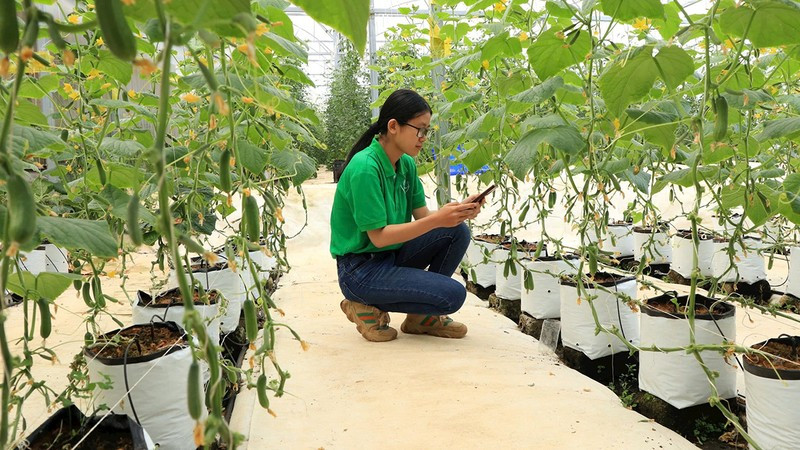The core members of Long Thanh Phat High-Tech Agricultural Cooperative in Dong Nai Province are around 60 years old. The cooperative produces approximately 7.5 million broiler chickens annually, with eight high-tech livestock farms spread across Dong Nai and Ba Ria-Vung Tau, generating profits of over 30 billion VND.
Sharing the success story of a cooperative established only in 2017 but achieving remarkable results early on, Le Van Quyet, Director of Long Thanh Phat Cooperative, said: “If members simply invest money and leave everything to the management board while waiting for profits, it will certainly fail. First, we must ask ourselves who to partner with and which direction to take and ensure production follows standard models. Next, we select experienced people who share our viewpoint. We believe if you want to go fast, go alone; if you want to go far, go together - we must hold hands and walk together.”
Building trust among members has been one of the primary criteria for Long Thanh Phat Cooperative’s effective operation.
For cooperatives to develop, farmers must research and calculate together to produce increasingly better products and sell what the market needs rather than what they have. This is also the hard-learned lesson that Pham Ngoc Thach, Chairman of Sunfood-Da Lat Agricultural Services Cooperative in Lam Dong Province, gained while running his cooperative.
In its early days, members of Sunfood-Da Lat Cooperative grew vegetables but only produced enough for subsistence. Recognising the inevitable demand for safe vegetables and traceable products meeting VietGAP standards, the cooperative implemented standardised production processes across all operations.
After five years, the cooperative has gained over 200 contributing members, with an annual revenue of approximately 72 billion VND. Chairman Pham Ngoc Thach affirmed: “The most crucial aspect of cooperative operations is identifying who to sell to and following standard procedures. Additionally, members' benefits should be proportional to their investment.”
In practice, cooperative management is not simple, especially when only about 16% of cooperative managers have college or university degrees or higher, while 51% of cooperative staff remain untrained. Therefore, developing cooperatives alongside improving staff capabilities is a priority concern.
Many people with master’s and doctoral degrees work at cooperatives, showing that this model still attracts talent. However, achieving this requires cooperative leadership to dare to think, act and change.
Under the impact of the fourth industrial revolution, many agricultural cooperatives have proactively partnered with technologically strong enterprises. According to Dam Quang Thang, Chairman of the Advisory Board for the National Innovation Startup Programme, scientific-technological achievements and digital transformation are creating major shifts in agricultural cooperatives’ quality management thinking. In Vietnam today, many enterprises are pioneering the use of IoT and blockchain to create clean products and transparency in goods production.
Global competitive pressure along with market fluctuations, natural disasters and diseases will become major challenges for Vietnam’s agricultural cooperatives in the coming years. To develop sustainably and benefit their members, cooperatives need good governance based on effective human resource utilisation, product quality control and risk management during operations.
















